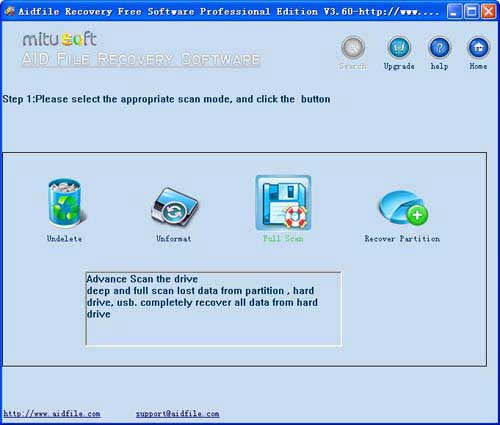Overclocking Why does my Windows 11 & Windows 10 PC suddenly BSOD repair tool fix to do data recovery, best data recovery software help you recover MS word,excel, pictures, music, video files from Overclocking Why does my Windows 11 & Windows 10 PC suddenly BSOD
Use "unformat" to recover data from Overclocking Why does my Windows 11 & Windows 10 PC suddenly BSOD laptop after quick format,full format,accidentally formatted,reformatting,High-level formatting,Low-level formatting.
Use "recover partition" to recover files from Overclocking Why does my Windows 11 & Windows 10 PC suddenly BSOD laptop partition,lost partition,changed ,damaged partition.And if the size or position of partition is changed by format,It can not recover with "unformat"so you can use "recover partition"mode.
Use "undelete" to recover deleted files from Overclocking Why does my Windows 11 & Windows 10 PC suddenly BSOD laptop after Virus attack,Recycle bin clear,disk cleanup,Press shift del by mistake,permanently empty recycle bin,shift delete ,accidentally deleted by a mistake.
Use "Full Scan" to recover data from Overclocking Why does my Windows 11 & Windows 10 PC suddenly BSOD which can not be found with "undelete" and "unformat" and "recover partition",after showing an error,display as raw file system,unformatted,unknown partition,unpartitioned,needs to be formatted,or the file system is not exfat,not fat32,not ntfs.
"Overclocking Why does my Windows 11 & Windows 10 PC suddenly BSOD", I ran through all the overclock settings in the BIOS and was looking on the utility, tried to go to 4.6, and BSOD as soon as I hit apply. No thermal throttling on load or idle beforehand, not even close (45 deg idle and low 60's under load). And no chance for the CPU to spike. As soon as it applies, it dies. Cranking in BIOS up to +.025V (not sure how high I can go here) doesn't fix the issue. The BSOD messages are never the same either. I'm stuck at my 4.5 GHz, which I am perfectly happy with, but am just confused as to why I can't even test any higher. Is it the silicon on the chip? or Windows 11 & Windows 10 throwing a fit?
Aidfile Recovery Software Keyfeature
support FAT32 EXFAT NTFS and RAW file system
support Win32 (32 bits) and Win64 (64 bits)
Support Windows XP, Windows 8, Windows 8.1,Windows Vista, Windows 2003, 2008, 2012,Windows 11 & Windows 10,Windows 7 .
Desktop & laptops Ultrabook:HP Pavilion,HP Compa,Alienware Alpha,Lenovo ThinkCentre,Lenovo IdeaCentre,Dell Inspiron,Dell XPS,Sony VAIO,Acer Aspire,Asus Transformer,Dell Latitude,Samsung Ativ Book,Asus VivoBook,HP Envy,Lenovo IBM ThinkPad,Lenovo IdeaPad Yoga,Microsoft Surface,Toshiba Satellite
MS Office document (Word, Excel, PowerPoint, Outlook) types (doc, docx, ppt, pptx, xls, xlsx, pst, etc.),photos (JPG, PNG, ICON, TIF, BMP, RAF, CR2, etc.), videos and audios (MPG, MP4, MP3, MTS, M2TS, 3GP, AVI, MOV, RM, RMVB, etc.), compressed files (rar, zip, etc.), PE files (exe, dll, lib, etc.) and so on.

